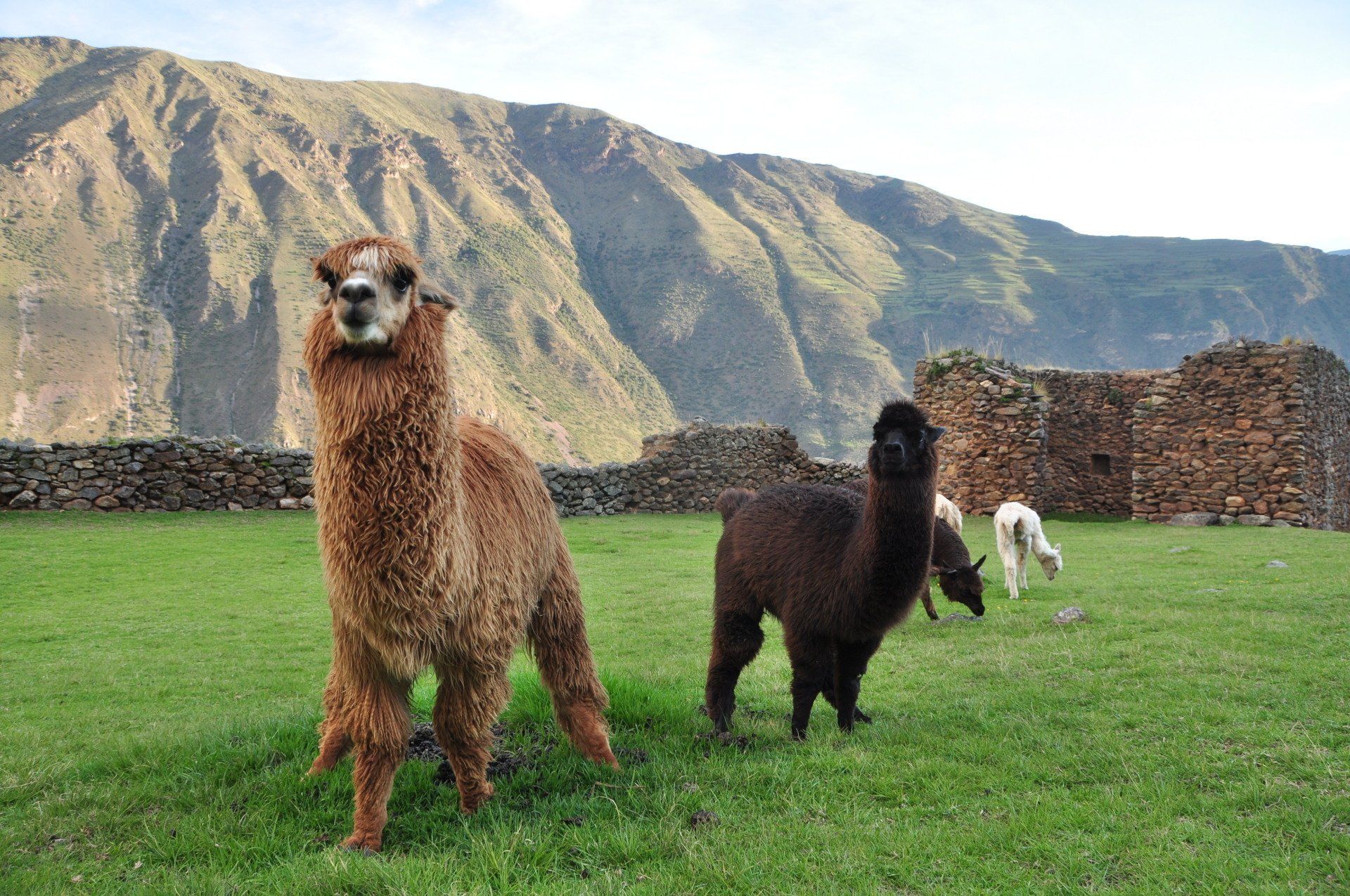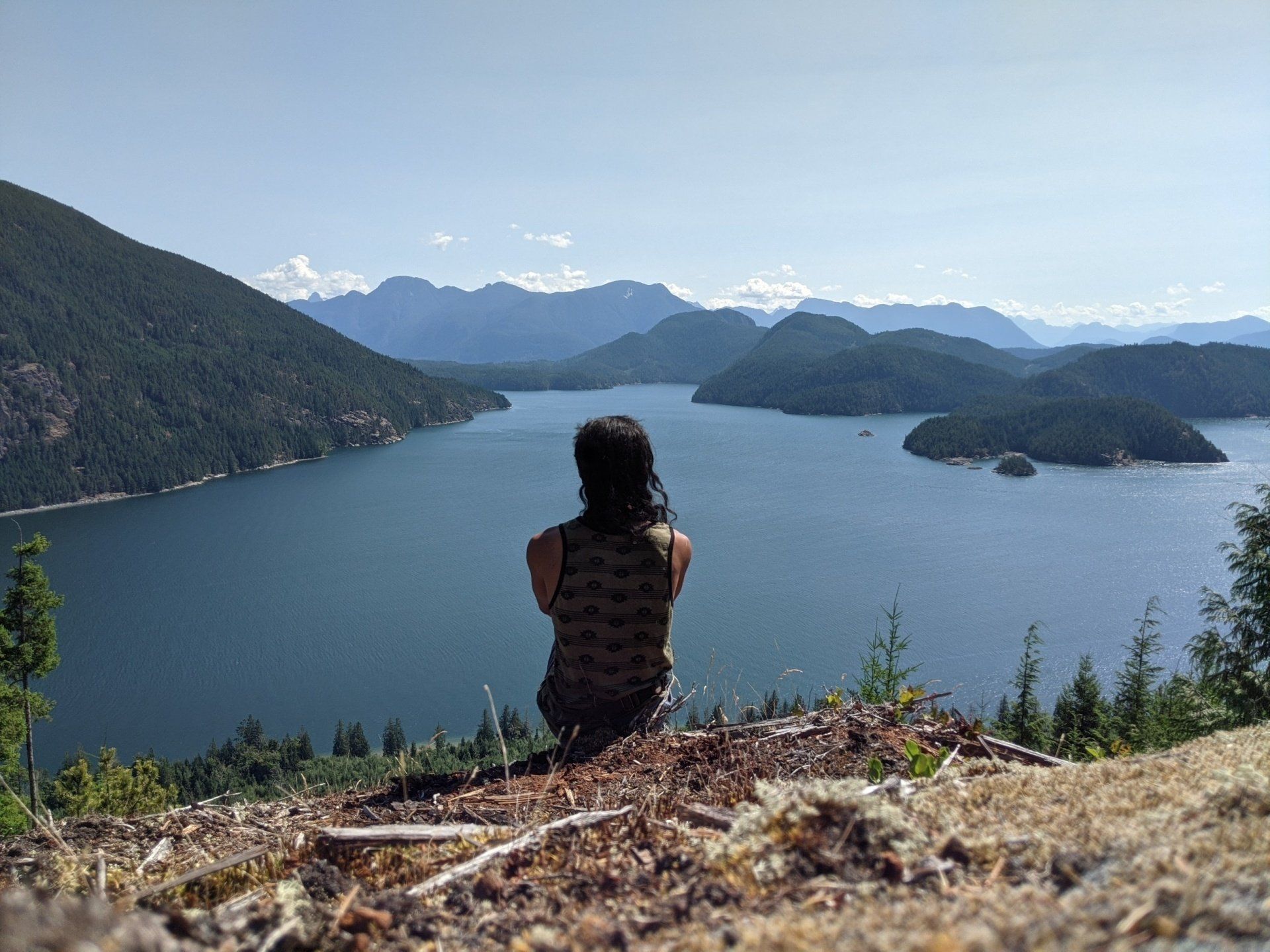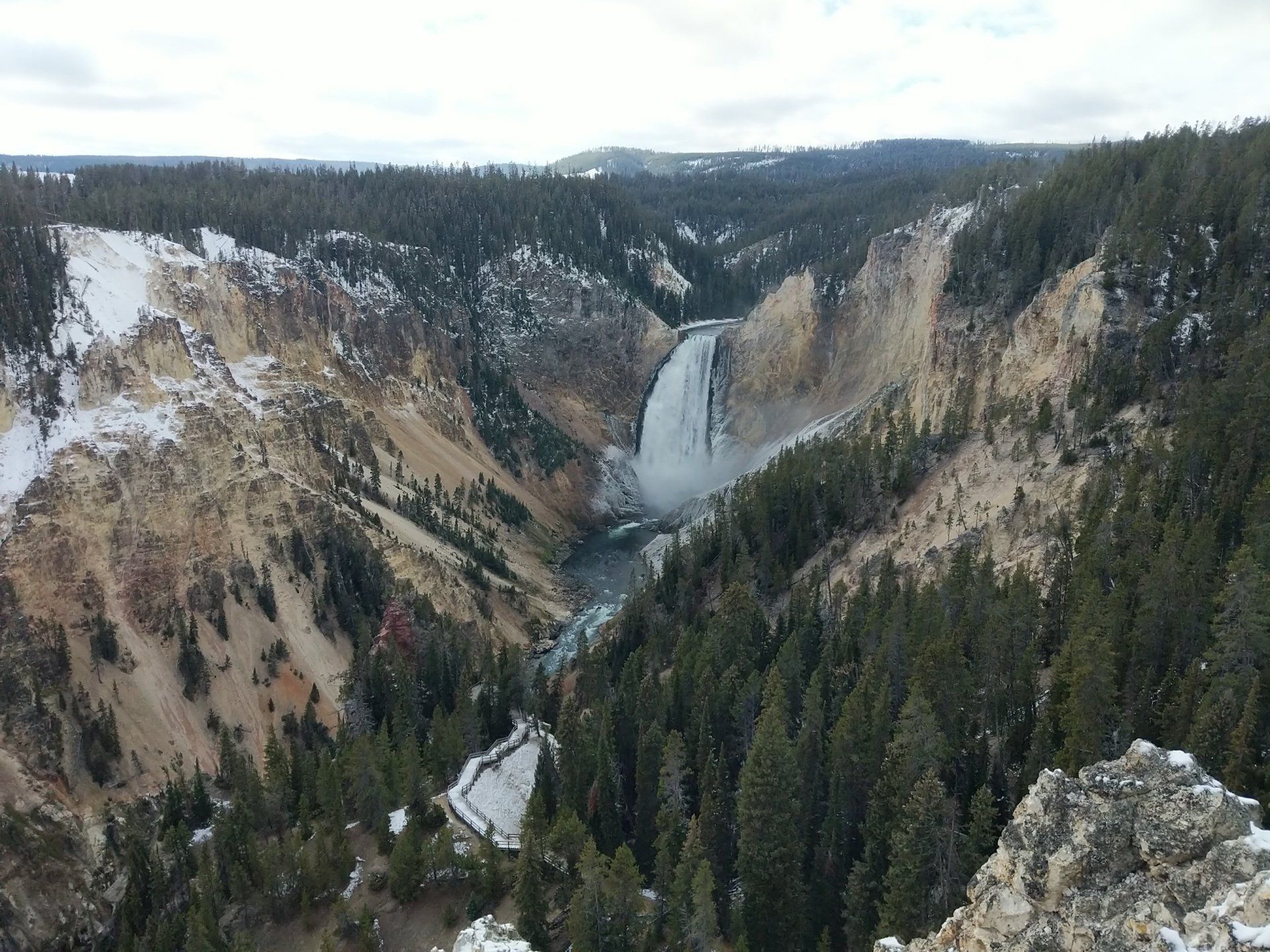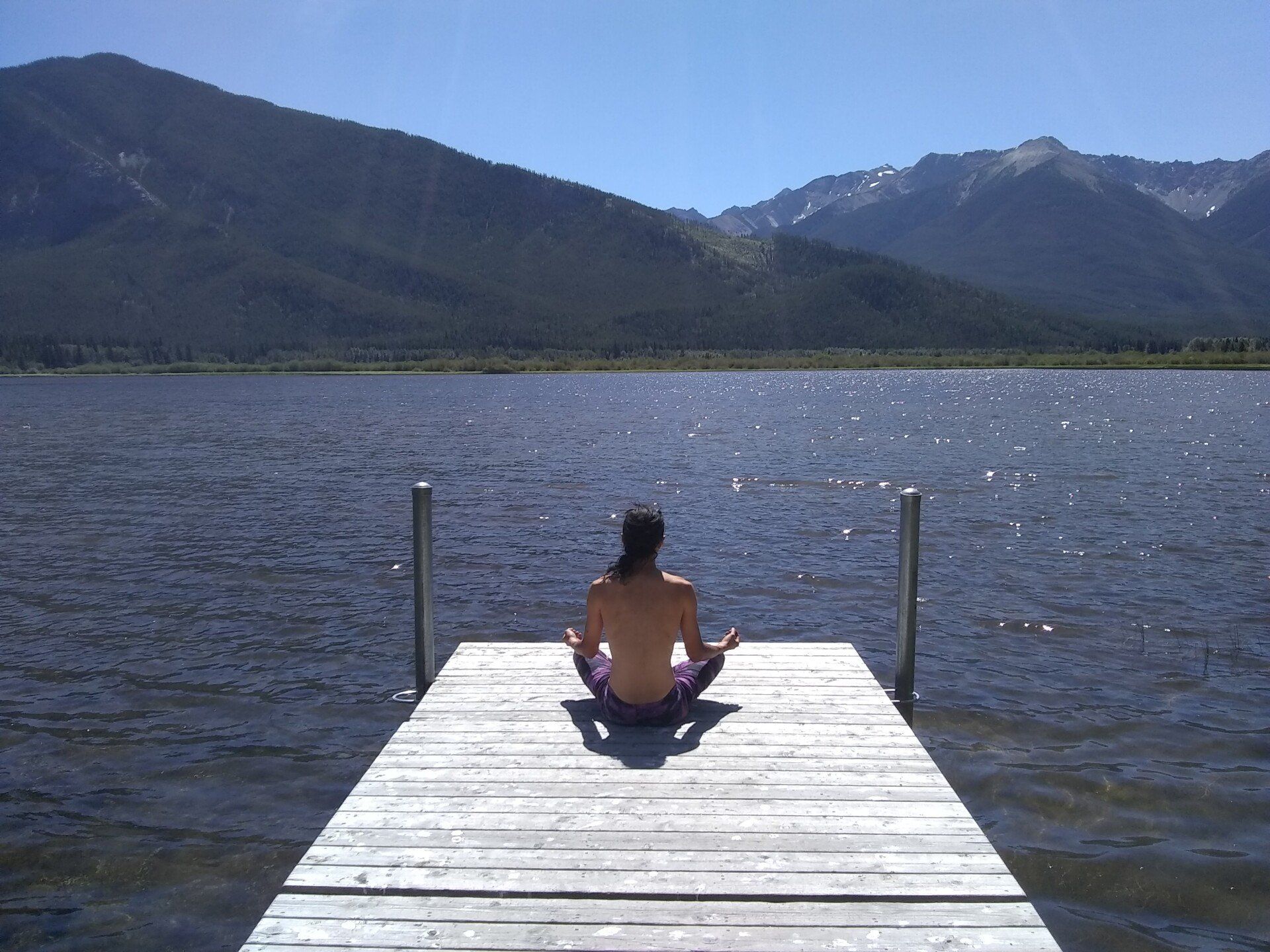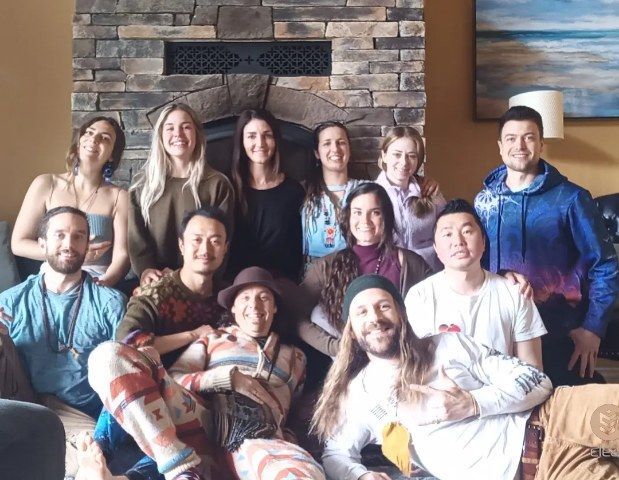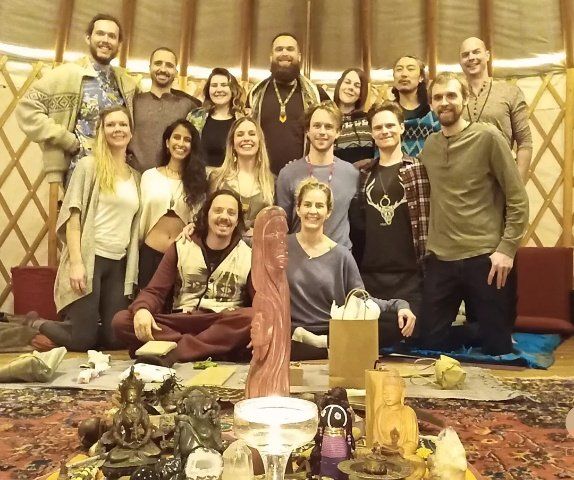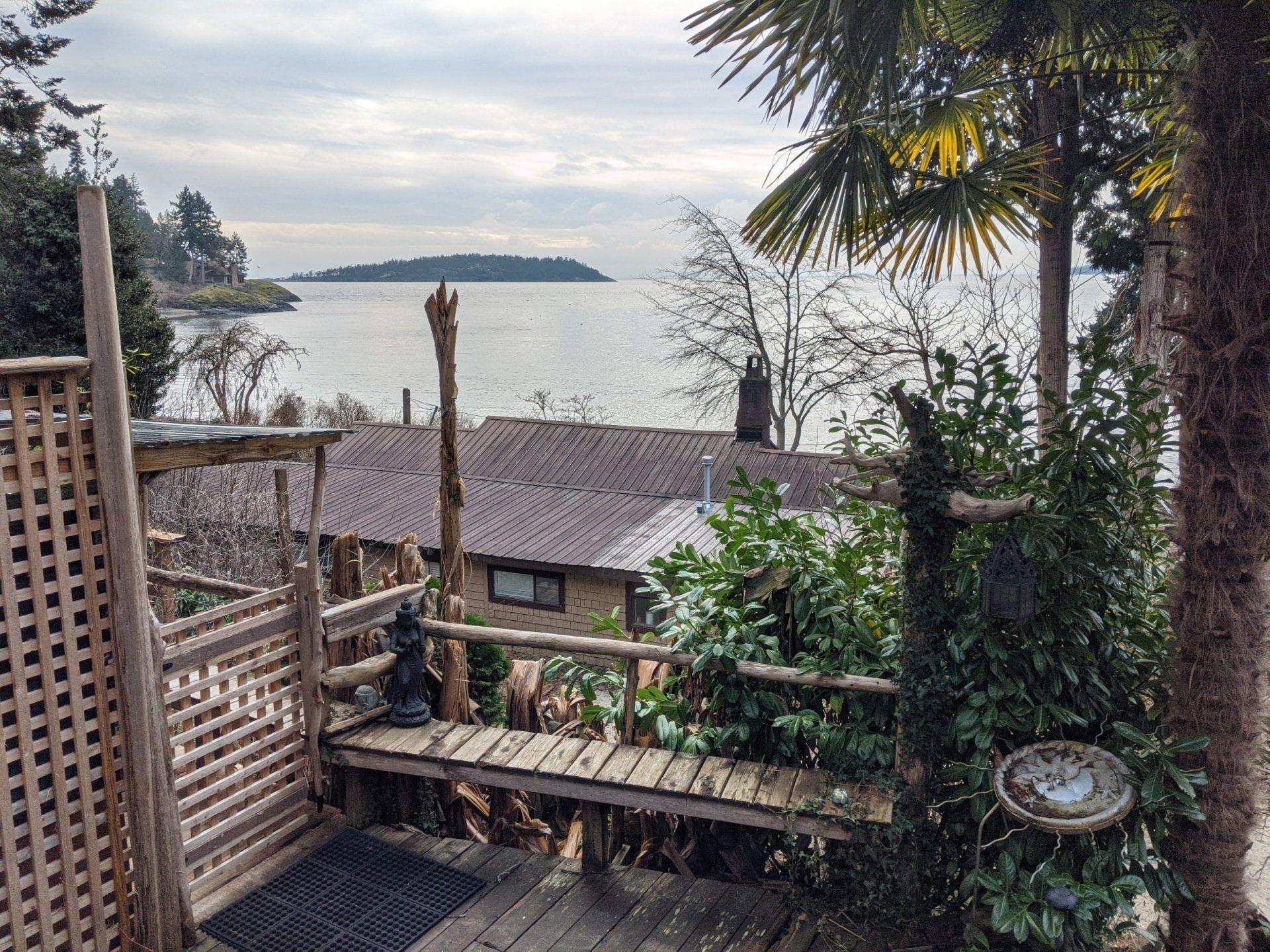How Do We Move Forward From Society As We Know It Today?
Andrew Lee • January 1, 2021
In order for there to be a societal revolution
there needs to be a spiritual revolution
In order for there to be a societal revolution
there needs to be a spiritual revolution
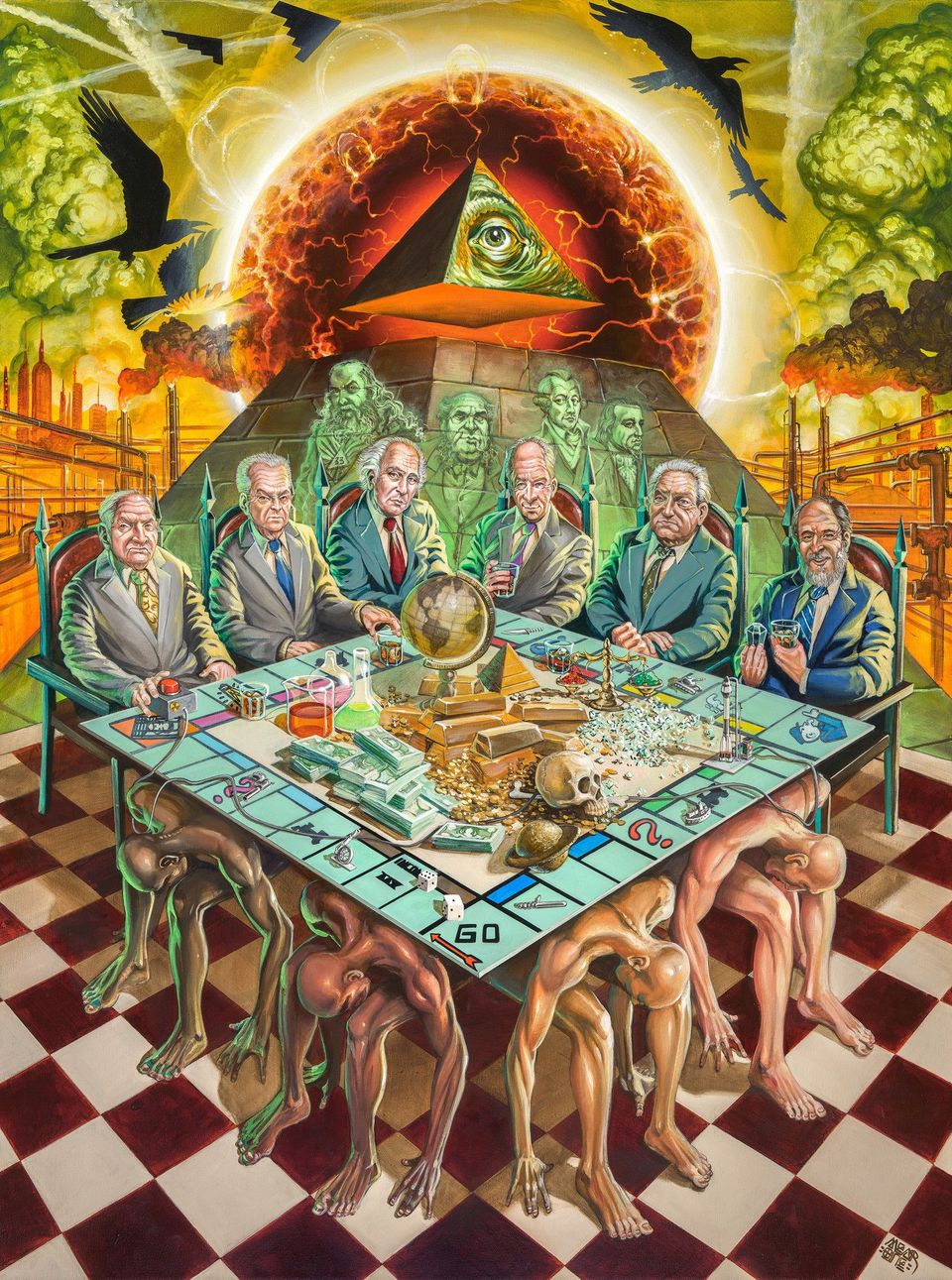
Originally published Jan 1, 2021
So I am about to bring you a fundamentally ground shifting perspective (with viable links throughout), something I think you and the rest of society is ready for:
Our current civilization as we know it is not the best way for humans to live.
Now, before you think I'm crazy and close the tab, I encourage you to give me a chance and read on. Take a healthy pause and think about society today...
Humans, the species that created it, largely sees itself as the pinnacle of nature, earth and beyond. Yet think about all of the problems it has created. No matter what faith or belief you adhere to you can't deny that the list is extremely long. Now consider the fact that the human species has been around 2 million years with the emergence of homo erectus, and our anatomically modern species about 200,000 years. Whatever timeline you use our species has been living in units called tribes and living a hunter-gatherer lifestyle for more than 99% of its existence.
Now think about that lifestyle... It doesn't sound like much fun does it? Exposed to the elements all day, having to move with the seasons, following food sources, owning only what you can carry on your back. And it also had way more problems didn't it? Of course - poor health, short life span, war! We're much better off now than we were as hunter-gatherers, for sure! We are. Right?
Wait... are we really?
Very few people have taken a deep dive to get clarity on this idea. And for good reason... if people in our society were to actually find out that the hunter-gatherer way of life was better than ours it would destroy our belief that our society is the pinnacle of nature. It would force deep humility and introspection that none of us are ready for.
But many of us especially in the western society are on the cusp of this deep introspection due to all the problems we are creating in the world. One barrier to this introspection is our governing institutions - they shield us from such a humiliating perspective. Schools teach us that humans have risen to prominence through scientific progress, and economics reinforces the idea of endless growth and progress. These institutions portray our hunting and foraging ancestors as uncivilized, filthy barbarians. This is also for good reason - the success of these institutions depends on the people subscribing to the status quo.
Nowadays society is beginning to rethink such core values such as growth, progress, expansion and assimilation/monotonization. But to really question this colonial thinking deeply we need to zoom way back in time, to before the roots of colonialization, before the advent of agriculture.
Humbled by History
Culture is a way of living, and agriculture is the predominant form of culture adopted today. However, as I mentioned 99% of our species history lived the hunter-gatherer culture. Thus, a deeper understanding of why we lived that way for so long is key to understanding our place in the world today. It also might reveal that our ancestors were not as filthy and barbaric as we were taught to believe.
Before we finally start digging deeper we need to have shared agreement on what makes a society or culture the right way to live. I think we can all agree that happiness is a core high level criteria. Then what makes people happy? Science is revealing that real happiness comes mainly from human connection. This podcast shares scientific studies showing that people who focus on consumerism, wealth and status are less happy than people who focus on intrinsic values such as personal growth, community and greater good (link here).
Here is a very influential TED Talk
in my life that reveals the key to real happiness and longevity is human connection. There are numerous studies, TED Talks and self help gurus that espouse how people who prioritize human connection are overall happier and live longer. People living tribally spend much more time socializing than people in modern society. They didn't need TED Talks to teach them this, they knew it intuitively.
Tribal peoples could socialize more because they worked a lot less. Hunter-gatherers worked no more than 5 hours per day, some days as low as 2, and certainly less than 5 days per week. But isn't our industrialized and automated society supposed to free up greater leisure time? It seems people are working harder than ever to make ends meet. And they are working in offices not moving their body, invisibly accumulating chronic pain and disease.
But despite that our society is overall healthier than hunter-gatherers... right? In fact hunter-gatherers past and present are a model of good health. Dental records show their teeth were better. They were extremely fit and injury resistant. Studies of existing tribes show a thriving gut with diverse microbiome. And cancer was ridiculously rare.
But that's ridiculous! In spite of that our medical system has allowed us to live much longer... right? It is true that mortality rates were much higher as babies were much more vulnerable to the elements in a hunter-gatherer lifestyle. However, that higher mortality rate artificially skewed the misleading short lifespan statistic of 30 years - once a hunter-gatherer lived past say the age of 5 they were very likely to live happy, healthy and spry into their 50s and 60s.
There's so much more we could deconstruct regarding health and happiness, but I'll stop here. So even if it was possible the hunter-gatherer lifestyle is broadly a better way of living, or our current way of living is not as great as we first thought, why did our species adopt agriculture as the primary way to live?
The Great Agricultural Experiment
Agricultural societies are fundamentally hierarchical. Such societies throughout history could never function without a power structure. People at or near the top of these hierarchies tended to reap many benefits from their position of power, and then figured their way was the best way to live. They also got drunk on this power and craved more. They thus developed and foisted a colonial mentality upon its members, mobilizing armies to annex and assimilate hunter-gatherer societies that saw the foibles of agri-culture and stuck with their hunter-gatherer ways. This is evident in the colonial nature of today's power structures from governments to corporations and billionaires.
Hunter-gatherer societies by contrast are mostly egalitarian in nature. Any existing power is purely based on wisdom and respect, and is informal, so does not carry any real power over other people. I believe humans are not meant to live with power over other humans. This was the case for 99% of human history so why would it be any different today? In modern society the Me Too movement is exposing us to infinite stories about people rising to power, then abusing it, from presidents all the way down to spiritual teachers and musicians.
There is a concept called the Rule of 150 positing that our brains cannot handle more than 150 relationships at once (link here), backed by psychology and anthropology. As one example, when a mennonite society grew to 150 members, it would split up into two tribes of 75 and go their separate ways. This allowed their societies to maintain an egalitarian structure. Grow beyond that size and abuse and fractures would start occurring within.
I think this is extremely important because it shows that humans are not inherently evil. Humans were simply never meant to have power over one another - our brains are still like that of our hunter-gatherer ancestors living in egalitarian social structures. Nor is this meant to exonerate those carrying out evil, or to feel resigned about our innate flaw as humans. Personally it allows me to not take acts of evil personally, nor to get angry and depressed about society. The Rule of 150 has been a key belief about humanity that I carry with me, and that has brought sanity to the world I live in. I even wrote my own blog about it (link here).
Yuval Harari
provides one more reason as to why agriculture was adopted near wholesale by humanity. In his book Sapiens
Harari argues that agriculture-based society is like a runaway train. Once humans began experimenting with it they couldn't stop. That's because the initial move to agriculture resulted in food surpluses, which spawned population growth, which increased food demand, which drove the need for land and expansion, which then created more food surpluses, and so on in a feedback loop of population growth and colonial expansion.
History has supported this fact that massive population growth spurts occurred with advances in agricultural output such as the advent of chemical fertilizers. We frequently hear in the news, how are we going to feed all the people on earth? This hides the fact that we have as many people on earth as we do today due to agriculture, and that hungry people is a symptom of the hierarchical structure of society.
Your Own Eyes Cannot Den-eye
Even if these arguments don't lead you to believe hunter-gatherers lived a better overall lifestyle, this information has to at least create cracks in the belief that the way society is living today is much better than at any point in history. You don't need to look far to see that people living in many poorer countries are happier because they live in community and prioritize human connection over materialism and status.
I've done quite a lot of travelling in my life and immersed long and deep enough in foreign countries considered third world and come to this realization for myself. And all I need to do is look into a mirror. I was not happy living in a consumer-centric society. I gave that up and, though I now have less materially, I prioritized human connection and spiritual growth along my journey and am much happier and healthier overall. Deep down I can honestly say if I died today I would die happy.
So how do we move forward with this information? Some fringy writers such as Neal Goldsmith
and Daniel Quinn
present a new culture or lifestyle called neotribalism or neopastoralism. They acknowledge that there's no going back to full on hunter-gatherer society. Nor would many of us choose to.
They reframe the idea of sacrificing a modern way of life and comforts to go back to the land, to the idea that society sacrificed much more when it decided to take up agriculture - security and belonging, community, connection to nature and spirit. Moving forward neotribalism will reclaim what society sacrificed while retaining many of the comforts of modern living.
There's an ideal balance there that will take time to figure out moving forward, but I see a much more decentralized world into smaller social units. Cities will shrink as people return to small towns and villages. There will be more organic farmers using permaculture principles to regenerate the soil working with the rhythm of the seasons. People can still travel, but they won't need to as much as today, because they will work less and feel more connected to their local communities and landscape, and won't feel the need to run away or "escape."
How do I know this is possible? Because I have actually lived in one of these neotribal settings (blog here). In modern terms it is referred to as an intentional community or ecovillage. I spent 3 months in this community earlier this year before deciding to ride a bicycle halfway across Canada back to my hometown.
This community still depended of course on the greater society around it, but less so than normal, and was working towards greater independence. Practicalities aside, I had the best time of my life here and was filled with so much love and connection, and really felt part of a tribe. The lesson I took away from my experience here is that there is a better way to live. This place is a beacon for society.
A Spiritual Revolution
Slowly, one by one, people are realizing that the way society is living is not the best way. They will learn the lesson remaining hunter-gatherers today already know
when they encounter modern society, full of greed and lacking spirit. Next when they see a better way is possible, such as my intentional community, many will start taking small steps to walk away from mainstream society. Over time there will be less and less dependence on society and the power structures that maintain it. One day those power structures will be dismantled, when they lose their grip over the very people needed to prop them up.
By this time a considerable portion of the global population will be living in smaller social units such as towns and villages, cooperating in a more tribal structure, using permaculture to restore the fertility of the land. They will continue to live with many modern comforts but reincorporate several aspects of ancestral culture and wisdom to achieve a balanced way of life not only with themselves but the environment.
But has any past civilization attempted just walking away? There are actually arguments that several pre-colonial American civilizations such as the Maya and Olmec abandoned their cities. And not because they got conquered and destroyed - there is evidence these people resettled elsewhere in smaller societies. Perhaps they over farmed the land? Perhaps the people at the bottom of the hierarchy realized this wasn't working and rebelled or walked away? There could be lessons to learn from this but, sadly, education tends to focus on colonial victory rather than failures.
If you largely question how society is living today, which most of us are, I believe the zoomed out perspective I just shared is an essential starting point. Having this perspective allows you to then zoom in and understand your place in it. Only then can you really have a solid foundation for taking action, and a vision beyond civilization to work towards.
In other words, in order for there to be a revolution, there needs to be a spiritual revolution at the individual level.
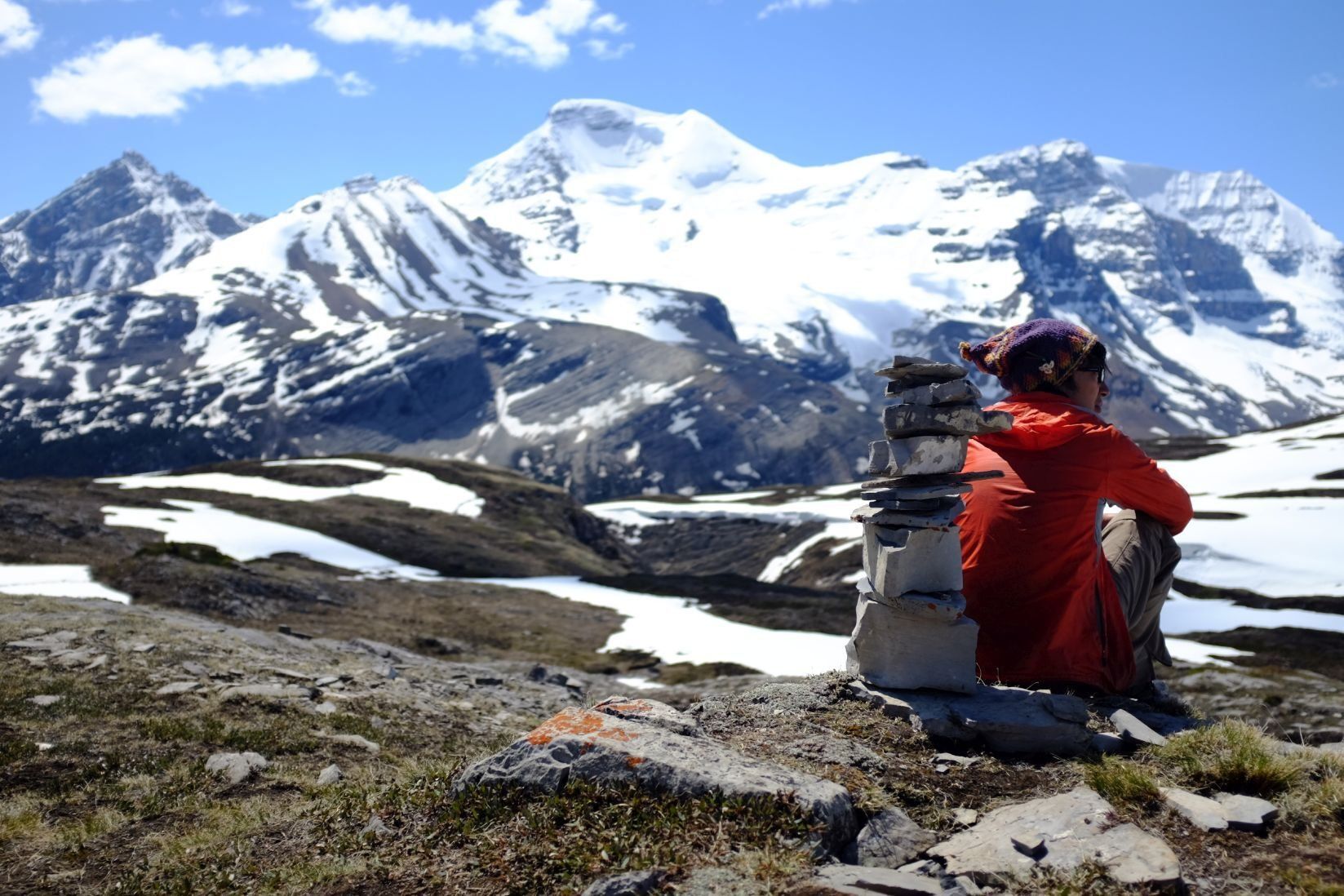
"People shouldn't be afraid of their governments. Governments should be afraid of their people." This phrase from my favourite movie alludes to the fact that the people should be the prevailing force that keeps their government in check. At some point a government becomes too big and starts looking after its own interests, no longer serving the needs of the people it was created for. Governments have long been the dominant organizations of the 20th century. In the 21st century technology corporations are eclipsing governments. Rapidly advancing technology has increased not only the influence of these national and multinational organizations, but their ability to monopolize even more power. When organizations reach a certain size, just like governments, they no longer act to serve the people, but their own interests. T here are plenty of examples of this throughout history. Facebook was recently exposed, when a former employee and whistleblower testified to the US Senate that the company repeatedly faced conflict of interests over profits versus reducing division, and always put profit first. Polarization for Profit How was FB able to do this? Typically if a company was exposed for not serving its customers' best interests, customers would take their business elsewhere. But with social media, there is almost nowhere else to go. FB has cornered the market, and intentionally bought or squashed competitors to cement its dominance in the space. Undermining free market principles has allowed FB to serve its own interests over the interests of its customers. They are maximizing their profit by allowing dishonest science to go viral, and allowing divide and conquer to occur. Facebook isn't the only big tech company guilty of this activity. Google, Microsoft and Apple have been sued for antitrust actions . And big tech isn't the only corporate sector valuing profit over people. Nearly all the largest corporations are guilty of some sort of fraudulent behavior, whether it's big oil, big pharma, big agriculture or big food. Governments are not only complicit in allowing corporate abuse to occur, they are often hand-in-hand with corporations and mainstream media. I've seen this first-hand with my experience at the Fairy Creek Blockade , the largest act of civil disobedience in Canadian history, preventing old growth logging on Vancouver Island. On the ground at Fairy Creek I've witnessed a coming together of some of the most beautiful and inspiring humans, passionately protecting the environment against corrupt political leader Premier Horgan, who went back on his word to stop old growth logging. In the news, however, there's little to no coverage of the events, and what coverage there is, is highly skewed against the protesters. It was here where my direct experience caused me to lose faith in mainstream media, and to see how they are under the sway of existing power structures. To see how they would take certain photos or video snippets and portray them in a different light, to make protesters appear irresponsible or incompetent. Or to portray the Premier's words and actions as if he was resolving the issue, when in reality he was deceiving the public. The Psychology of Polarization So why, on a psychological level, is polarization catalyzed by social media? It's quite simple really. Technology has eroded the quality of communication between people. There is a richness to face-to-face communication that cannot be conveyed. Studies have shown that 90% of communication is nonverbal (body language and voice tone), meaning only 10% of communication is through words alone. Words alone are such a poor quality of communication that they do not properly express the author's full meaning, and are too easily misinterpreted by the reader due to their own biases. This is especially true with words on a screen, transmitted through instant messages or social media posts. And yet it has become the most dominant form of communication due to its convenience. How many times did you misinterpret a text or a social media post, and respond with a critical comment? How often did this needlessly escalate into a full blown conflict? It happened quite a bit in the past with me, and I eventually learned to resolve disagreements with a phone call or meeting face-to-face. Unfortunately, too many people rely on texting because they have gotten too used to it and have lost their ability and initiative to resolve conflicts in person. Humans are still wired for face-to-face communication, and this is particularly necessary when resolving conflicts. Today, we are creating conflicts through texting and comments on social media posts. This is a recipe for disaster, a vicious cycle of misinterpretation where one comment blows up into massive conflicts. And, as mentioned in the previous section, Facebook is aware that this is happening on their platform, and instead of working to resolve it, they are exacerbating the problem. But the sole goal, the very existence of a corporation, is profit. Any non-financial consequence is a mere externality. Bridging the Communication Gap Seeing the bigger picture isn't easy. It takes a trauma-informed understanding of how the world got this way, in order to move forward with nonviolent solutions that bring people together, not further apart. The majority of people are living in fear. Their nervous systems are constantly in hypervigilance, meaning they are on edge, ready to engage in fight or flight. Showing them disagreeable information will only trigger their fight or flight, and potentially start a vicious cycle of arguing. People living in this way carry a narrowed perspective, focusing only on survival, and are thus unable to see the bigger picture. In order to engage with people on the other side of the coin, social media is not the answer because its low quality medium of communication creates further division. What's needed is the exact opposite . The one antidote in a time of such extreme polarization and division is face-to-face conversations with those we disagree with. This is also exactly what is being discouraged by the pandemic. Mask mandates have undermined our ability to see and read facial gestures. Closures of small businesses and gathering places have prevented the opportunities for holding the gatherings and face-to-face conversations needed to bridge this gap. It is critical to be able to spend time with people we don't know in order to break down each other's walls, and eventually feel safe sharing information without feeling antagonized. The Way Forward More and more people out there are realizing deep down that not all is as it seems. If I have a plea to you, it is, against all odds, to take the courageous step to gather with people and have face-to-face conversations again. If you can do this with people you already feel safe with and who share your views, then do this with people who you don't agree with. Start by smiling at strangers outdoors. Engage in friendly conversation. Unmasked people have been framed as antagonists. If you are brave enough to go into indoor businesses without masks, smiling at people completely disarms their hypervigilance. This is exactly what I have been doing, and the vast majority of my interactions have been positive or innocuous. I've had people smile back at me and acknowledge my bravery, and others follow my lead and take off their mask. Unmasked and smiling, you are a shining light, a warrior. You are an inspiration to others who sense something is wrong but are too afraid to act out against the narrative. Even if you have confrontations, smiling and holding your head high, proves to the confronters that you are a compassionate individual. Not only are you disarming the narrative, but you are disarming nervous systems. I certainly have had a few business owners ask me to put on a mask or leave, and obliged their concerns with a smile. If conflicts occur through your social media platforms, engage directly with others through phone calls or voice messages. This has been my most effective tool for deescalating conflicts. However, I choose phone calls and voice messages over texting more and more often these days in general, because my friends and I value the richness of expressing in voice and hearing each other's voices. Polarization is one of the greatest invisible threats to society, preventing people from uniting in action against tangible and urgent threats. It is up to all of us individually to overcome these barriers, through gathering and having face-to-face conversations again, with those we do and do not share views with.

